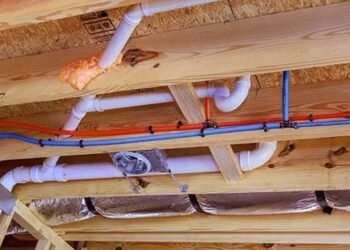Water heaters are essential to our everyday lives, providing hot water for bathing, cleaning, and other household chores. Nevertheless, water heater leaks can be a typical issue, and if left untreated, they can usher in substantial impairment and expanded energy bills. We will investigate the common causes of water heater leaks and provide solutions to prevent and fix them.
Common causes of water heater leaks
Loose Connections
One of the most common causes of water heater leaks is loose connections. Over the term, the pipes and fittings that link the water heater to the plumbing system can become loose, causing water to leak out of the links. This can be caused by differences in water pressure, temperature oscillations, or merely wear and tear.
Solution: Check the connections regularly to ensure they are tight and secure. If you witness any leaks, turn off the power supply to the water heater and tighten the links with a wrench. If the leak persists, contact a proficient plumber to review and repair the connections. For highly skilled, professional and affordable plumbers, click here.
Corrosion
Water heaters are susceptible to corrosion, primarily in regions with hard water or heightened levels of minerals. Corrosion can induce holes or cracks in the tank, ushering water leaks. Further, the anode rod inside the tank can become corroded, guiding to leaks and reducing efficiency.
Solution: Regularly inspect the tank for signs of corrosion, such as rust or discoloration. If you notice any signs of corrosion, replace the tank or the anode rod instantly. Contemplate installing a water softener or filter to reduce the levels of minerals in the water and prevent future corrosion.
Pressure Relief Valve
Water heaters have a pressure relief valve that dismisses excess pressure inside the tank to prevent bursting. Nevertheless, if the valve is defective or worn out, it can compel water to leak.
Solution: Inspect the pressure relief valve regularly to ensure it operates accurately. Substitute the valve immediately if you notice any leaks or signs of damage. Further, ensure the valve is not obstructed by debris or sediment, which can compel it to malfunction.
Drain Valve
Water heaters are also furnished with a drain valve that authorizes you to flush out sediment and debris from the tank. Nevertheless, if the valve is loose or faulty, it can compel water to trickle out of the valve.
Solution: Check the drain valve regularly to ensure it is tightly closed and not leaking. If you notice any leaks or signs of damage, replace the valve immediately. Additionally, make sure to flush out the tank regularly to prevent sediment buildup and prolong the life of your water heater.
Temperature and Pressure Relief Valve
The temperature and pressure relief valve (T&P valve) is another safety component on water heaters that releases excess pressure and temperature inside the tank. Nevertheless, if the T&P valve is faulty or worn out, it can compel water to leak out of the valve.
Solution: Check the T&P valve regularly to ensure it is functioning correctly. If you notice any leaks or signs of damage, replace the valve immediately. Additionally, make sure the valve is not obstructed by debris or sediment, which can cause it to malfunction.
Tank Overheating
If the water heater is set to a temperature that is too high, it can compel the tank to overheat and expand, leading to leaks. Further, if the thermostat is faulty, it can cause the water heater to overheat and malfunction.
Solution: Inspect the temperature settings on your water heater and make sure they are not positioned too high. The ideal temperature range for a water heater is between 120 and 140 degrees Fahrenheit. If the thermostat is faulty, substitute it immediately to stem overheating and leaks.
Water heater leaks are a common problem that should not be ignored. Loose connections, corrosion, faulty valves, and tank overheating are among the most common causes of water heater leaks. Regular maintenance and inspection can help stem these issues from occurring, while timely repairs and replacements can help minimize the damage and prolong the life of your water heater.
If you detect any indications of a water heater leak, such as puddles of water around the tank or unusual noises, turn off the power supply to the water heater and reach a professional plumber immediately. A trained and adept plumber can inspect your water heater, diagnose the issue, and recommend the best solution to determine the problem.
To prevent water heater leaks, consider installing a water softener or filter to reduce the levels of minerals in the water and prevent corrosion. Regularly flush out the tank to remove sediment and debris, and check the connections and valves for signs of wear and tear. Additionally, contemplate replacing your water heater every 10-15 years to stem leaks and enhance energy efficiency. You can know more details at Sarkinen Plumbing website.












